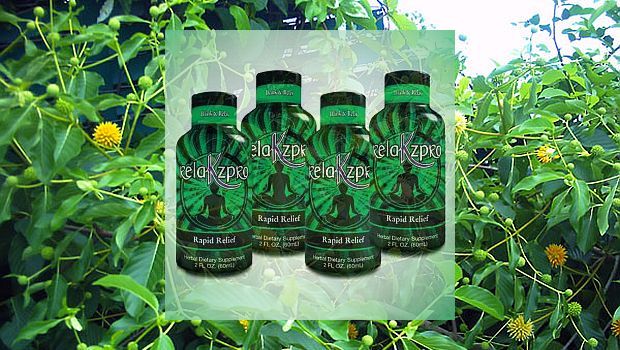Federal agents seized 90,000 bottles of kratom, but the debate on benefits vs. safety has resulted in mixed legality status.

Kratom is not a legal dietary ingredient in the eyes of FDA, which notified the supplement industry in 2013 about the ingredient’s growing popularity and dangers, started seizing imported kratom in 2014 and has opened 2016 with a big kratom seizure. The agency has said its concerns are based on research showing dangerous side effects, including dependence, but opponents of FDA’s position on kratom point to the herb’s history of safe use and its medicinal benefits as reasons why it should be legal.
At the request of FDA, the U.S. Marshals Service seized nearly 90,000 bottles of beverages marketed as dietary supplements and labeled as containing kratom. The seized products, worth more than US$400,000, were sold under the brand name RelaKzpro. The product was manufactured for and held by Dordoniz Natural Products LLC, a South Beloit, Illinois company. However, the ingredient comes from overseas.
FDA has expressed serious concerns about the safety of kratom, as reflected in its 2014 warning to consumers and related import alerts. In announcing this latest seizure, the agency again warned consumers not to use dietary supplements labeled as containing kratom, and they should report any adverse effects through the agency’s MedWatch program.
Kratom (Mitragyna speciosa) is a tropical tree that grows in Southeast Asia including Thailand, Malaysia, Indonesia, Bali, Borneo and Papua New Guinea. Dried or fresh leaves from the tree have been traditionally chewed or brewed into a tea. According to the European Monitoring Centre for Drugs and Drug Addiction (EMCDDA), a Lisbon, Portugal-based decentralized EU agency, kratom at low doses has a stimulating effect, but at high doses can have sedative or narcotic effects. The agency said regular use of kratom can trigger dependence. As with other botanicals, there is a variety of phytochemicals active in leaves, including flavnonoids, polyphenols and glycosides, but the main psychoactive constituents are mitragynine and 7-hydroxymitragynine—these are unique to kratom.
In documents filed for the seizure warrant, FDA alleged consumption of kratom can cause numerous health problems such as respiratory depression, vomiting, nervousness, weight loss, and constipation. “Kratom consumption has been linked to neurologic, analgesic and sedative effects, addiction, and hepatic toxicity," it wrote in the complaint.
“We have identified kratom as a botanical substance that could pose a risk to public health and have the potential for abuse," said Melinda Plaisier, the FDA’s associate commissioner for regulatory affairs, in a statement. “The FDA will continue to exercise our full authority under law to take action on these new dietary ingredients, especially if they ignore the notification requirements, as part of our commitment to protecting the health of the American people."
Plaisier referenced the new dietary ingredient (NDI) notification regulation, under which companies must notify FDA about their intent to market an NDI that wasn’t in commerce in the United States before October 1994. This is no simple notification, as the company must include details on the ingredient, including research and safety data showing the ingredient will reasonably be expected to be safe. According to FDA, there has only been one NDI notification submitted for kratom, but the agency rejected the notification for being incomplete, a common issue with NDI submissions. The details of this lone NDI notification on kratom, such as the company who filed, were not immediately available from FDA.
While this latest seizure demonstrated kratom still appears in products sold as dietary supplements, the herb’s staunchest users have taken to ordering online direct from suppliers overseas. One look at the subreddit for kratom shows users interacting with suppliers from Bali, Borneo and other Asian locales. These subreddit posters report using kratom for a range of benefits, including getting high, alleviating pain and even kicking heroin addiction.
Kratom’s Benefits Studied
Opponents of state and federal actions against kratom tout the botanical’s medicinal benefits, such as help with pain and addiction, but the Drug Enforcement Administration has previously stated it does not recognize any legitimate medical use for kratom.
In its fiscal year 2016 budget’s Justification of Estimates for Appropriations Committees, FDA stated its November 2014 alert on kratom was based on research conducted by the National Center for Natural Products Research (NCNPR), an FDA partner based at the University of Mississippi, as well as on an “evaluation of scientific literature establishing serious concerns regarding the toxicity of kratom."
However, Christopher McCurdy, Ph.D., a professor in the university’s School of Pharmacy, which is home to NCNPR, has found compounds in kratom can be medicinally beneficial.
“In Southeast Asia, kratom has long been used for coughs, diarrhea, muscle aches and pain," McCurdy said in a 2013 news release on his research. “It is also used as a replacement for opium when opium isn’t available and has been used to wean people off (that narcotic)."
His team isolated mitragynine from kratom leaves and tested it in mice; they found its ability to ease withdrawal symptoms was superior to methadone, the drug standard of care for narcotics addiction. The researchers noted chemical modifications to kratom leaf raw materials could weed out the botanical’s undesirable effects.
“Mitragynine completely blocked all withdrawal symptoms and could provide a remarkable step-down-like treatment for people addicted to hardcore narcotics such as morphine, oxycodone or heroin," McCurdy said in the release. “The compound has been known for years, but we’re working to come up with an improved synthetic analog or a better formulation of the tea for testing in humans."
McCurdy collaborated on kratom research with Edward Boyer, Ph.D., professor of emergency medicine and director of medical toxicology in the School of Medicine at the University of Massachusetts. Boyer, an opium treatment expert, worked with McCurdy on analyzing kratom from a few hospitalization cases and found the problems were not with the kratom itself. In one case, co-administration of modafinil caused seizures, while adulteration with hydrocone and morphine was to blame in other cases. The results were published in the journal Addiction.
As part of a National Institute for Drug Abuse study, McCurdy has also teamed up with an international group of scientists to research kratom compounds that inhibit toxic and behavioral effects on cocaine and methamphetamines. McCurdy said this was the first time researchers used this type of compound to block self-administration of cocaine in rats. Essentially, the compound selectively makes rats stop taking cocaine without affecting their other activities.
However, subsequent research published in Addiction in 2014 reported finding evidence mitragynine use can be potentially addictive and cause cognitive impairments; the international team of researchers noted the results suggest mitragynine should be classified as a harmful drug.
Interestingly, McCurdy and Boyer asked kratom users in an anonymous chatroom about their usage frequency and doses, as well as any side effects they experienced; this info contributed to dosing and frequencies used in their kratom research.
The Botanical Legal Defense, which has led the way in fighting for favorable regulation of kratom that would make the herb more easily available to Americans, recently reported on apparent success in Wisconsin, where the state’s controlled substance board looks to de-schedule kratom compounds. They quoted board member Tim Westlake, M.D., an emergency physician, as saying the herb can be helpful in the quest to decrease the amount of opiates prescribed for pain. “(Kratom) is not a panacea, but the addictive potential seems a heck of a lot less than that of opiates," he said.
U.S., International Agencies Target Kratom
Online forum users are also a window into what is going on with kratom shipments in the United States. Some redditors have recently lamented about having trouble receiving kratom shipments from overseas via the U.S. Postal Service. They did not report receiving any notice about seizure, although that possibility was often discussed. FDA declined to comment to INSIDER on whether it is focusing monitoring and enforcement actions on big and small shipments, but the reddit users’ experiences suggest all packages are subject to scrutiny for kratom.
In March 2014, FDA told its field personnel they could detain suspicious imports without a physical or chemical inspection because of the agency’s determinations the herb can cause adverse health effects.
In announcing the latest seizure, FDA said it had the Justice Department file a complaint in the U.S. District Court for the Northern District of Illinois alleging kratom is an NDI and there is “inadequate information to provide reasonable assurance that it does not present a significant or unreasonable risk of illness or injury; therefore, dietary supplements containing kratom are adulterated under the FD&C Act."
Food and drug attorney Ricardo Carvajal, director for Hyman, Phelps & McNamara, took to his FDALawBlog to explain FDA’s use of administrative detention was made easier by the Food Safety Modernization Act (FSMA), which “lowered the standard for administrative detention from ‘credible evidence or information indicating" that a food “presents a threat of serious adverse health ‘consequences or death,’ to ‘reason to believe’ that a food is adulterated or misbranded." Carvajal expressed doubt FDA could have met the higher pre-FSMA standard.
U.S. and E.U. authorities aren’t alone in acting against kratom. Just last month, Thailand police arrested two men and seized 142.6 kilos of kratom leaves stashed in a rental property in Phuket. One of the men arrested told officers he bought the leaves for the equivalent of US$23 per kilo and would sell the leaves to teenagers and migrant workers for US$33 per kilo. He’d sell out in under two weeks. The arrested pair said they turned to selling kratom after their market vending business went flat.
Thai officials have been very active against kratom, with a number of seizures and arrests in summer of 2015. Thailand government officials, including the Narcotics Control Board have talked about decriminalizing kratom, including possibly reducing penalties, but thus far, kratom is still illegal there and the arrests keep coming.
Thailand is one of four countries where kratom is illegal, joining Australia, Myanmar and Malaysia in banning the herb. According to the Botanical Legal Defense, kratom is also illegal in four states in America: Wisconsin, Indiana, Tennessee and Vermont (certain kratom compounds). For now, kratom is legal in many states, but FDA is serious about keeping the ingredient out of dietary supplements, at least until an NDI notification proves to the agency a kratom ingredient is reasonably expected to be safe.
About the Author(s)
You May Also Like






.png?width=800&auto=webp&quality=80&disable=upscale)